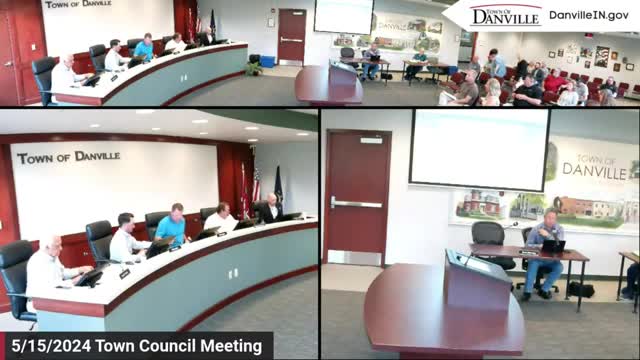Consultant tells Danville council utilities in good cash position now but warns 2028 wastewater project will require large rate increase
Get AI-powered insights, summaries, and transcripts
Subscribe
Summary
Kroen & Associates adviser Tony Thompson told the Town Council that Danville's water, wastewater and stormwater utilities built reserves after recent bond work but projections show a likely large rate increase if a planned wastewater expansion proceeds in 2028.
Tony Thompson, a financial adviser with Kroen and Associates, presented Danville Town Council with the annual financial reports for the town's water, wastewater and stormwater utilities and outlined multi‑year projections and capital needs.
Thompson told the council the utilities have rebuilt cash reserves since recent capital work and the 2023 bond issuances, but he warned that a planned wastewater treatment‑plant expansion could require a large future rate increase.
Thompson said the water utility showed strong metered sales growth and more than $1 million in tap and acreage fees in 2023, which he described as “a significant source of funds for the utility to accumulate funds for the next project down the line.” He noted capital additions of nearly $9,000,000 in 2023 and said the town had roughly $3,300,000 in excess cash above minimum bond‑required reserves for the water utility.
On operational metrics, Thompson said unaccounted‑for water (line loss) in 2023 measured about 15 percent after adjustments he discussed with water superintendent Matt Lisonbee, down from larger figures reported the prior year, and characterized that 15 percent as acceptable for the utility.
For wastewater, Thompson said recent bond proceeds and reimbursements brought long‑term debt onto the books in 2023 but that cash reserves have also increased to about $3,100,000. He described adopted and phased‑in rate increases that will cover near‑term debt service, but he flagged a longer‑term funding gap: the projection schedule assumes the town will issue bonds for a wastewater‑treatment expansion in 2028. Using a $25,000,000 bond in the model, Thompson said, “we're still gonna need an additional 40 and a half percent rate increase” to service that debt; he added that the cost estimate could be higher and said he was sticking with the $25,000,000 figure for the projection.
Thompson said his 2024 projections use conservative assumptions: a 2 percent annual growth in water sales and a 4 percent annual escalation on operating disbursements, with an assumed $500,000 of annual capital outlay for water. He told council members he can re‑run projections using building‑permit and development schedules if the council prefers higher growth assumptions.
On stormwater, Thompson said the utility's cash balance had been relatively low historically (about $550,000 in 2017 and modest changes since), and he described a scenario in which the town issues a $2,000,000 bond in 2026 backed by a 50 percent stormwater fee increase. Under that scenario, he said the town's typical residential charge would rise to about $12 per month — up from roughly $8 now — and that the bond would fund a portion of the $4–5 million in short‑term stormwater work the town's staff has identified.
Council members asked staff for follow‑up details and for more time to review the reports; Thompson said he would provide updated projections if the council supplied building‑permit and project lists and agreed to try to deliver the report earlier in advance of the meeting next year.
The council took no formal rate action at the meeting. Thompson emphasized the current health of reserves but urged planning now to smooth future increases, suggesting smaller, phased increases can reduce the likelihood of a single, large “rate shock.”
